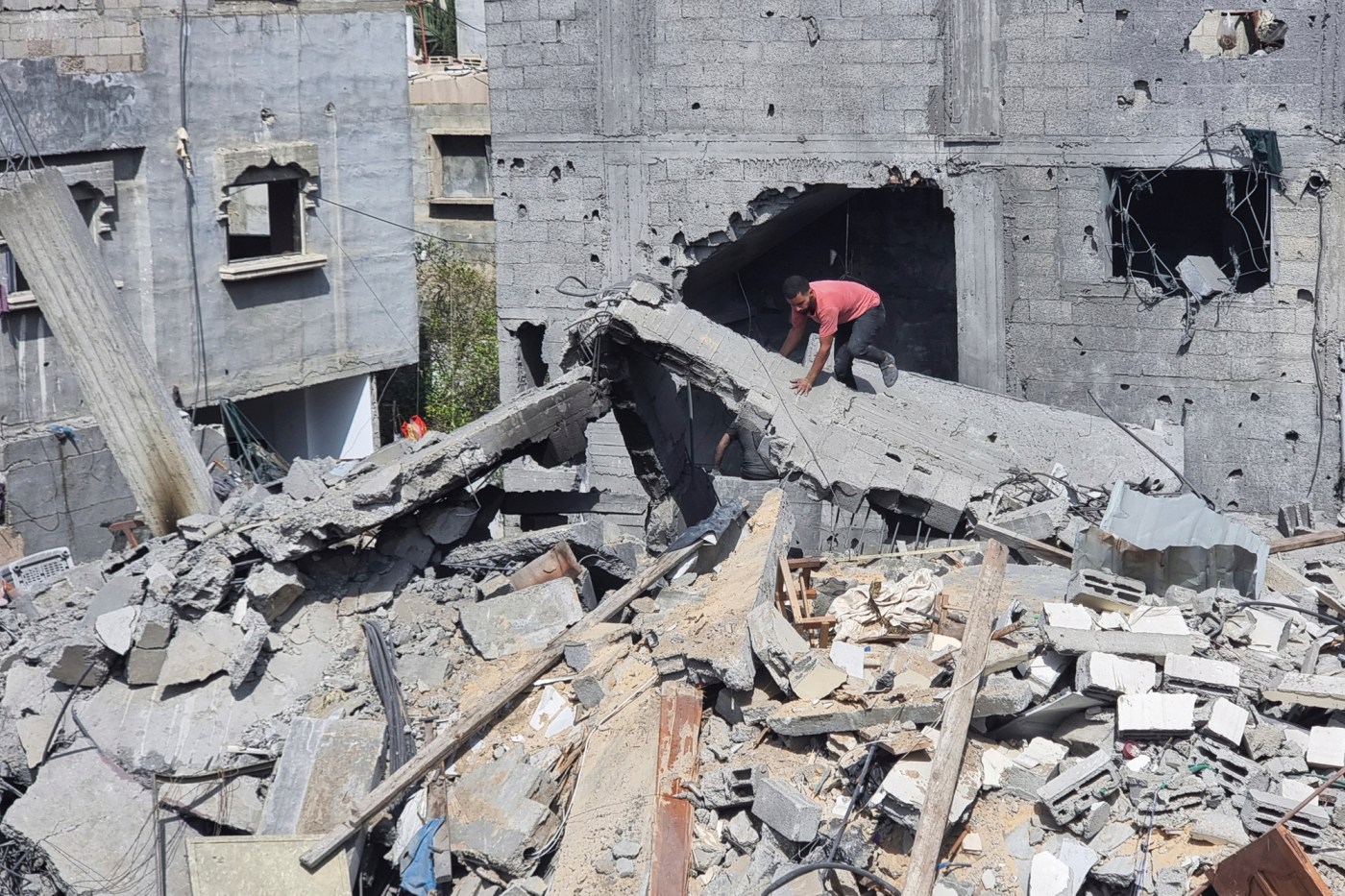In a speech in Warsaw, Poland, two years ago, President Joe Biden declared that “the great battle for freedom” is one “between a rules-based order and one governed by brute force.”
Now we’ll see whether he meant it.
By a lopsided vote of 13-2, the International Court of Justice has ordered Israel to “immediately halt its military offensive” in Rafah and open border crossings for “unhindered provision” of humanitarian aid. But the court’s order, while binding, has no enforcement mechanism — which in practice means it is up to the United Nations Security Council and in particular Biden to enforce.
This should be an easy call, and it offers Biden a chance to rescue his failed Gaza Strip policy, for, in this case, Biden and the World Court are fundamentally aligned: They both oppose an all-out invasion of Rafah, and they both want Israel to allow in more humanitarian aid. But for seven months, Biden has allowed himself to be ignored and steamrolled by Israeli Prime Minister Benjamin Netanyahu, and the question now is whether the court ruling will help Biden find the gumption to pressure Israel to obey the decision.
Biden’s leverage is obvious: He can suspend the provision of all offensive weapons to Israel as long as it defies international law, building on his pause in the transfer of large bombs. This would still allow the transfer of defensive weapons so that Israel would not be in significant danger from missiles or other threats, and it is a step that 40 House Democrats, including Nancy Pelosi, called for last month.
America’s hypocrisy
When President Ronald Reagan faced a similar situation during Israel’s catastrophic invasion of Lebanon in 1982 (which led to the rise of Hezbollah), he suspended some weapons transfers and warned that the U.S.-Israeli relationship was in jeopardy; it worked. Biden’s DNA may not allow him to apply similar pressure.
While Biden is deeply knowledgeable about international relations and has generally overseen a smart foreign policy, particularly in Asia, he has bungled the Middle East and damaged America’s moral authority. When he champions the “rules-based international order” in Ukraine against an enemy that breaches international law, undermines the norms of war and attacks infrastructure so as to make civilians suffer, yet then provides weapons and diplomatic protection for Netanyahu’s war in Gaza, much of the world sees only hypocrisy.
To be blunt, Biden’s policy in Gaza has been a moral, practical and political failure. It has made the United States complicit in civilian deaths, including in the starvation of children. It has undermined our stance in Ukraine. In my view, it hasn’t helped Israel eliminate Hamas, recover hostages or improve long-term security. And it may be hurting Biden’s chances of winning key states like Michigan.
One window into Biden’s failure: the temporary pier that he ordered the United States military to set up to deliver aid into Gaza.
Instead of pressuring Israel firmly to allow the thousands of trucks at the border to enter Gaza, the Biden administration in December effectively blocked a U.N. resolution that would have set up a U.N. system to get around the Israeli inspection bottleneck. So children starved to death.
Biden then dispatched the U.S. military to create the pier, at a reported cost of $320 million. After more than two months, the pier is in place, but there isn’t a good system to actually get food to people who need it — so it has made little difference. It has amounted to an expensive gesture, a substitute for action rather than a spur to it.
Rafah is not the danger
Meanwhile, the World Food Program warns that there is now a full-blown famine in parts of Gaza. And the U.N. indicates that the situation has deteriorated since Israel began its Rafah operation. “Barely any fuel or aid is getting into any part of Gaza,” the World Food Program said this week, adding that “humanitarian operations in Gaza are near collapse.”
In its argument before the court, Israel made a legitimate point: “The fact remains that the city of Rafah also serves as a military stronghold for Hamas, which continues to pose a significant threat to the State of Israel and its citizens.” Israelis were shattered by the brutality of the Oct. 7 terrorist attack, and I understand their determination to eradicate every remnant of Hamas.
But as I’ve argued, leveling Rafah is unlikely to achieve that or lead to the recovery of hostages (the U.S. reportedly believes Hamas leaders are in Khan Younis, not Rafah). Prolonging this war is in Netanyahu’s interest, but it is not in the interest of Israelis, Americans or Palestinians.
Related Articles
Honored nurse fired from NYU hospital after referring to ‘genocide’
Israel says it has taken control of part of Gaza’s border with Egypt
Pro-Palestinian demonstrators disrupt Chevron shareholder meeting
Netanyahu frequently makes claims of antisemitism. Critics say he’s deflecting from his own problems
UC student workers expand strike to two more campuses
Last week, when the prosecutor for the International Criminal Court sought arrest warrants for Israeli and Hamas leaders alike for war crimes, Biden fumed that the action was “outrageous.” I wish he had instead focused on getting food to starving children, but now he again has a chance to uphold international law and begin to extricate himself from a policy nightmare.
Without any clear plan for post-conflict Gaza or for the West Bank, Biden’s Middle East policy is in tatters. It is possible that his goal of a three-way deal with Israel, Saudi Arabia and the United States will come together and create a path out of this mess, but it seems a long shot, and there’s no obvious Plan B.
So I suggest it’s time for Biden to act firmly and withhold all offensive weapons as an imperfect approach that just might be a step toward easing the humanitarian catastrophe, ending the war and upholding that “rules-based order” that he says he believes in.
Nicholas Kristof is a New York Times columnist.












